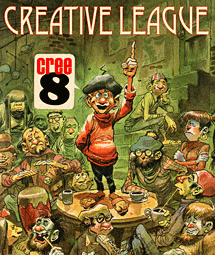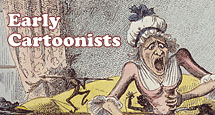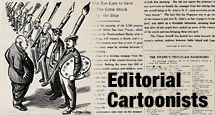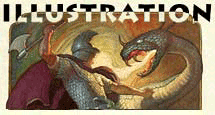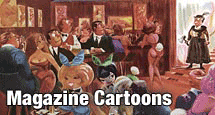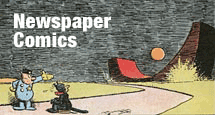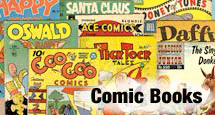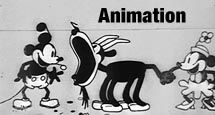This posting is a stub. You can contribute to this entry by providing information through the comments link at the bottom of this post. Please organize your information following the main category headers below….
Birth/Death
Birth:
Death:
Occupation/Title
Artist, designer, animator, and layout artist
Bio Summary
Ed Benedict was born in
Early Life/Family
Brother Bill
Sister Miriam
Wife- Alice
Children:
– Son, Donald
– Son, Allan
Grandchildren
– Derek and Peter (Donald’s children)
Education/Training
A highly respected and greatly admired animator, Benedict’s skills were honed throughout his impressive professional career.
Career Outline
Benedict began his career in animation at Disney in 1930, working on such early films as THE CHINA PLATE and BLUE RHYTHYM (both 1931), starring Mickey and Minnie Mouse. He moved to Universal in 1933 to work on Walter Lantz’s OSWALD THE LUCKY RABBIT shorts. He spent much of the 1930’s at Universal, aside from a brief stint with Mintz and an attempt to open his own studio (Benedict-Brewer, with Jerry Brewer). The studio collapsed because studio-owned theatres would not show their independently produced work. In the early 1940s Benedict returned to Disney and worked on several industrial/educational films (DAWN OF BETTER LIVING, etc.), and also received his first and only Disney credit as a layout artist (the Willie the Whale segment) on MAKE MINE MUSIC. Mid-1940s, he became involved with TV commercial animation at Paul Fennell’s Cartoon films, where he honed his modernized approach to drawing.
In 1952, Benedict was recruited by his former Universal colleague Tex Avery to become Avery’s lead layout artist and designer at MGM. Ed designed a number of Avery’s classic shorts including DIXIELAND DROOPY, FIELD AND SCREAM, THE FIRST BAD MAN, DEPUTY DROOPY and CELLBOUND. After Avery’s departure from MGM, Benedict continued working at the studio on the Mike Lah-directed Droopy shorts, while also freelancing for Avery on TV commercials at Cascade. While at MGM, Ed’s work caught the eyes of Bill Hanna and Joe Barbera. Hanna asked Benedict to design a dog and a cat for a TV project, which turned out to be the first Hanna-Barbera TV success: THE RUFF AND REDDY SHOW. During the late-1950s and early-1960s, Benedict became the primary designer for Hanna-Barbera and he designed most of the studio’s early stars including Yogi Bear, Huckleberry Hound, Quick Draw McGraw, The Flintstones, Snagglepuss and countless others. He not only created memorable characters, but also placed them in memorable settings, breaking TV taboos. In the Flintstones, Fred and Wilma were the first animated couple to be shown sleeping in the same bed. It would not be an exaggeration to say that a large part of H-B’s success in TV animation is owed to Benedict’s incredibly appealing and fun character designs. Ed moved to
Comments On Style
His style was to draw heavily outlined figures, with unusual asymmetry and flat geometric shapes. The simplicity of his characters enabled Hanna Barbera to make cartoons for television at less than half the budget previously allocated for such films in the cinema. – Matthew Bannister (“last word”, BBC)
Ed Benedict’s distinctive style, most noticeable in his Hanna-Barbera creations, was striking with its charm and warmth. His creations were very stylized, with their heavy lines and stubby limbs. Though they were drawn in a flat manner, they were not bland, and exuded strong personalities that led to great popularity with the public.
Influences
Russell Patterson and Roy Nelson
Personality
Known for being passionate when it came to discussing art, design, and animation. Has an exterior that has been described as “indifferent” (Cartoon Brew), curmudgeonly, and crusty (John Kricfalusi), but a depth of character that reveals itself in his soft heart, warm creations, and lively opinions.
Anecdotes
In interviews, Benedict would berate fans for loving shows he helped create. He told Animation Blast: “I never really looked at a lot of them. I suppose when they first came out I looked at a few, and pretty soon they didn’t interest me. I wasn’t seeing any of my work. It was somebody else’s poor drawing of what I tried to do with the original model and they were just embarrassing. Somebody would say ‘Oh, I just love that stuff,’ for Christ’s sake! There’s an assumption that that’s my stuff they’re complimenting – but it isn’t my work.”
He made it very clear that he disliked the Hanna Barbera TV cartoons, the work that he was most known for, and that he didn’t care particularly that people liked his work so much.
I first met him in the mid 80’s when Lynne Naylor, Bob Jaques and I went on a trek to northern
I showed him a bunch of Clampett cartoons and he was amazed at how wild and inventive they were. “Damn ugly though!”
Over the last couple decades I kept visiting him and rifling all his files of fantastic cartoon drawings he did for cartoons, commercials and comic strips. He also would show me lots of photos he took of the MGM studios in the 1950s. He would point to an animator and tell me all about him. “See that guy with the suave mustache? That’s Ken Muse, a nice guy, a real slick operator. Couldn’t draw worth a crap! Hanna loved him cause he could really ‘pump out the footage’! But a good guy to go bowling with, one of the guys.” – John Kricfalusi
Miscellaneous
Curmudgeonly he may have been, but he was liked by the fans and his influence was recognized by many, notably John Kricfalusi, the creator of Ren & Stimpy, who has described Benedict as “an unsung hero of animation. He was one of our greatest designers.”
Filmography
The Dizzy Dwarf (1934) (animator)
Amateur Broadcast (1935) (animator)
Quail Hunt (1935) (animator)
Battle Royal (1936) (animator)
Unpopular Mechanic (1936) (animator)
The Golfers (1937) (animator)
Steel Workers (1937) (animator)
Fireman’s Picnic (1937) (animator)
The Mechanical Handy Man (1937) (animator)
The Dumb Cluck (1937) (animator)
Birth of a Toothpick (1939) (animator)
Make Mine Music (1946) (layout artist- Willie the Whale)
The First Bad Man (1955) (layout artist) (uncredited)
Deputy Droopy (1955) (layout artist)
Cellbound (1955) (layout artist)?Grin and Share It (1957) (layout artist)
Mucho Mouse (1957) (layout artist)
Blackboard Jumble (1957) (layout artist)
One Droopy Knight (1957) (layout artist)
Sheep Wrecked (1958) (layout artist)
Mutts About Racing (1958) (layout artist)
Droopy Leprechaun (1958) (layout artist)
“The Huckleberry Hound Show” (1958) TV Series (layout artist)
“Quick Draw McGraw” (1959) TV Series (layout artist)
“The Flintstones” (1960) TV Series (character designer)
“Dastardly and Muttley in Their Flying Machines” (1969) TV Series (layout artist)?”Hong Kong Phooey” (1974) TV Series (layout artist)
Boo Boo Runs Wild (1999) (TV) (dedicatee) (layout artist)
Honors
Annie Award: Winsor McCay Award 1994
Related Links
http://film.guardian.co.uk/obituaries/0,,1921348,00.html Obituary
http://www.imdb.com/name/nm0070768/ Ed Benedict on IMDB
http://johnkstuff.blogspot.com/2006/08/ed-benedict-1912-2006.html John Kricfalusi’s Blog
http://www.bbc.co.uk/radio4/news/lastword_22sept2006.shtml Matthew Bannister, “Last word”, BBC
http://www.cartoonbrew.com/archives/2006_08.html Cartoon Brew
Contributors To This Listing
Shecky Grey
benj
Brother Rabbit of www.ralphbakshi.com





